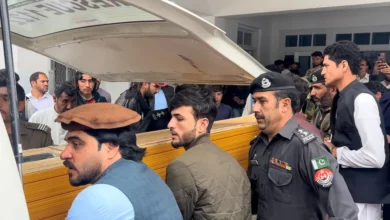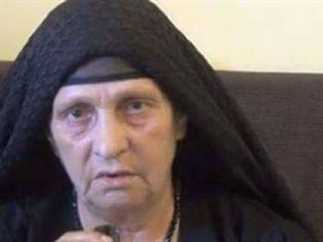Around 30 bloggers and activists were released Saturday after being briefly detained in Qena’s Security Directorate. The young men and women were apprehended in Naga Hammadi’s train station, southern Qena, after traveling from Cairo to offer condolences to the families of victims of sectarian violence and pay their respect to Bishop Kirollos of the Naga Hammadi Diocese, who was allegedly himself a target in the attacks against Christians there.
Security is currently beefed up in Naga Hammadi, the site of recent sectarian clashes between Muslims and Christians, and a deadly shooting that left six Coptic Christians and a Muslim killed and 10 more wounded. Even press personnel are not allowed to inspect sites of clashes or interview eyewitnesses without special permits. Security officials tied the attack to the November rape of a Muslim girl by a Christian man in the nearby town of Farshout. Naga Hammadi’s incident is only the latest in a series of assaults against Christians, who constitute around eight to ten percent of the population and are members of the oldest church in the world.
The bloggers, who are on their way back to Cairo as time of writing, were among a group of Egyptians that include politicians like Osama Ghazali Harb of the liberal Democratic Front Party, Kifaya leader George Ishaaq and Cairo university professor and opposition leader Mohamed Abul Ghar, who wanted to visit Naga Hammadi to show solidarity with the town’s Christians, whose moves are also stifled. However, the politicians had taken a different route, and were on their way to Naga Hammadi in private cars.
Wael Abbas, prominent bloggerm said he spent "one of the worst nights ever in detention." On his way back to Cairo, he told Al-Masry Al-Youm on the phone that they were left to sleep on the cold floor in jail all night. "When we were transferred to Qena’s prosecution, we were told we faced charges of ‘illegal gathering, disrupting authorities’ work, and shouting slogans that could cause sectarian rifts’," he said, adding that he was questioned in the absence of his lawyers.
The bloggers include Amira el-Tahawy, Mustafa el-Naggar, Ahmed Badawi, Shahinaz Abdel Salam, Mohamed Khaled known by his alias "Demagh Mak" and human rights activist Paula Abdo — himself an eyewitness to some of the clashes that occurred earlier in Naga Hammadi following the shooting.
Khaled told Al-Masry Al-Youm by phone as he was being transferred to the police station on Friday that they were arrested the moment they stepped on the platform in Naga Hammadi’s train station. Their cell phones and identification cards were confiscated shortly after.
"When we stopped in Naga Hammadi, we were quickly surrounded by a gang of plain-clothed policemen, then we saw there were four truckloads of riot police forces waiting for us. They all descended the trucks and surrounded us too. It was as if an explosion was about to happen. We were overwhelmed," explained Abbas on Saturday.
On Friday night, Al-Masry Al-Youm had managed to reach Amira el-Tahawy, one of the female bloggers who were detained alongside seven other girls in a separate facility inside Qena’s security department. El-Tahawy, who was obviously crying as she spoke, said that they were left without food or water for 10 hours. "We’ve been sitting on the cold floor now since 8:30 in the morning. No one is talking to us or explaining anything. They just brought us food after ten hours of starvation but we’re not touching it. The girls and I have decided to go on a hunger strike until we know what’s going on," she had said.
The girls were later transferred to a hospital inside Qena since some of them were suffering from dehydration and fatigue and they were released from there, also on Saturday afternoon.




